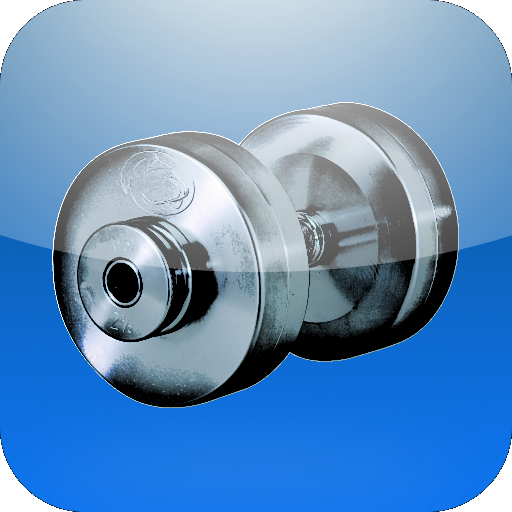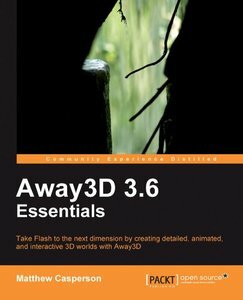Update 7/29/2011
As of Titanium Studio 1.2.0, integrated mobile debugging is now free! Get it here: http://www.appcelerator.com/products/download/
Searching for the Silver Bullet
So if you haven’t already figured it out, I’m gunning to decide once and for all on a cross platform mobile development framework. While all the Flash gurus I know are singing the praises of the latest versions of Adobe’s mobile platform, I don’t have the patience for an official release and docs to surface. That leaves me with two options among the frameworks I’ve evaluated: PhoneGap and Appcelerator.
If you are interested in my past evaluations, check out these prior posts I wrote:
- A Deeper Look at Appcelerator and PhoneGap
- PhoneGap is Web-based. Appcelerator is Pure Javascript
- Appcelerator vs. PhoneGap vs. Adobe Air
Now judging by those past comparisons, it’s pretty clear that each framework has its place. It doesn’t have to be one or the other. Or does it?
I’m Only One Man
There comes a time after evaluating platforms, tools, and anything else when you have to make a decision. Especially is you are an indie developer like myself. You can end up diluting your potential impact on your target field by trying to be a jack of all trades, master of none. It turns out its a lot more effective to be a jack of all trades, master of at least one.
So I keep circling back to “Appcelerator or PhoneGap?” I’ve done the technical comparison and neither is the wrong choice in any respect. Both have incredibly intelligent people spearheading their development, great productivity tools, and continuous updates and improvements to their framework. So what does it come down to?
- Which one do I spend the most time in?
- Which one do I start pouring my effort into?
- Which one do I start contributing back to?
- Which one do I think is looking out for me, the indie developer?
- Which one, if it went belly up today, could I continue to use and bend to my needs?
As I asked these questions of myself, I found that I was leaning towards PhoneGap. I will say, though, that this is in no small part to how strong the PhoneGap crew’s Twitter presence is. Here’s a list of PhoneGap people to know. I am a Twitter junkie () and being able to ask questions and get near-immediate responses definitely swayed my thinking. They do, in general, with their MIT/BSD license and github’ed everything seem like they side with the developers more than their competitor in this case.
But damn are the native UI components and pure Javascript interface of Appcelerator sexy. I’m not a web developer by trade, so the pure JS appeals to me more than needing to know the finer points of the HTML/CSS/JS stack. And the tools they have are top notch. But that’s where my decision started to be made…
Making My Decision Easy
I just needed a definitive nudge in either direction really. Something the resonated with me and said, “This is the framework you should be using.” Appcelerator gave me that nudge, but not in their direction.
I just received an email from Appcelerator touting their new official release of their Titanium Studio. Its a great piece of software that allows you to create an Appcelerator project and deploy it to multiple mobile platforms. Sounds great, right? I thought so too, until I read on.
Upgrade to Titanium Indie or Titanium Professional to get a full mobile debugger.
Just for reference, that means $49/month for the Indie subscription and $199/developer/month for the Professional subscription. So at its cheapest rate, I’ll be expected to pay almost $600 a year just to debug my mobile applications. That is not something I’m willing to pay.
On the other hand, PhoneGap is currently working with the author of , , to incorporate it into the PhoneGap project. Yes, that’s right, they are working to integrate mobile debugging into their framework for free. Pretty clear to see what an OSS supporter like myself is going to like.
Cheap Bastard
I know what you might be thinking, “Damn, he’s a cheap bastard who isn’t willing to shell out cash for decent software.” Well, yeah, and I’ll bet a lot of my readers are pretty much the same way. But it goes beyond that. It feels a bit like a bait and switch.
They offered Titanium Developer as a means to developer Appcelerator projects in the past. Then they tell everyone that Titanium Studio is the future, so that’s what you need to be developing in if you want to stay on the roadmap. Then they effectively pull the plug on Titanium Developer, make Titanium Studio an official release, then start charging for what I consider to be basic IDE functionality. Seems a little uncool.
EDIT: Kevin and Scott (see comments) are right. This wasn’t a “bait and switch”. Titanium Developer did not have this functionality, therefore it is not deceptive that the official release of Titanium Studio does not either. I will miss it, but it was not at all deceptive.
Soooo…
As you might imagine, my personal cross platform efforts will be using PhoneGap. That’s not to say I won’t be involved in Appcelerator development. I still think its a great way to develop iOS based apps when you or your team is lacking in Objective C and/or XCode experience. Its fast, effective, and Appcelerator nailed the iOS platform. They just rubbed me the wrong way at a critical time in my decision making process. I encourage anyone reading this to not let my assessment make your decision for you as I think Appcelerator is a good fit for many.
PhoneGap is the answer to almost all the questions I posed in my list above. I just really like the team and the open nature of the project. Plus, it lets me sharpen my web developer chops (Appcelerator dev is not web dev) while working in my primary focus of mobile development. It’s just a very good fit for me and the guys I work with on a regular basis.
In the End
Its all up to an educated choice that plays to your personal strengths and proclivities. In this case, both frameworks kinda did. But due to an intense focus on community from PhoneGap, they are going to continue to win over developers like me. Who knows, though, I’m a cheap bastard. Maybe there’s no money in catering to developers like me.
While everyone needs to pay the mortgage, I somehow get the impression that the PhoneGap crew will be OK with it if they all aren’t millionaires. They strike me as guys who strive to maintain a resonance with developers. In in that effort, I say they have excelled.








I am on the same boat as yourself about the switch to the new “IDE” but not because of the price, but because I think it’s an inferior IDE for my needs, I want to develop apps on the IDE that I think is right, not a bloated software of their choosing.
Appcelerator is at its core a platform company – that’s the kind of business we want to build and we want Titanium to continue to be our primary focus. If we’re going to continue to pour our time and resources into the platform, we need to be able to extract some kind of monetary value from the platform and tools. What should be free and what should be paid is a question we struggle with constantly, but I see nothing morally or otherwise wrong with asking for financial support from developers to support efforts they benefit from. Also, I’m not sure how our decision to charge for enhanced tooling (i.e. step through debugging) could be seen as a bait and switch – all functionality that exists in Titanium Developer today will continue to be free in Titanium Studio, and work much better.
If we wanted to build a business where we focused 25% on the platform and 75% on services revenue generation, then we might make different decisions about what (if anything) to charge for the software. I don’t think a product like Titanium could be built under those conditions, but regardless – we want to focus on the platform, and we need to be able to support those efforts. And we’re proud of the fact that because our core platform is free and open source, we provide a level of transparency that we couldn’t if our software was 100% proprietary. We also make it very easy to create applications that deliver a ton of value without paying Appcelerator a dime.
It could be that you have decided that the Indie subscription and the software it gets you access to doesn’t provide enough value to you and your business to justify a purchase. That’s cool – I hope you change your mind at some point, but you need to make the best decisions possible for yourself and your business.
In response to Raul’s point, Titanium Studio continues to be driven by command-line usable Python scripts, so the IDE is not necessary. I use TextMate and the CLI most of the time myself. The interface to them isn’t yet great, but we intend to continue to build out the human-usable titanium.py interface as user demand dictates. I’ll probably also release something myself at some point, which may or may not roll into the core product – follow github.com/kwhinnery if you’re interested in keeping an eye out.
Tony –
Certainly value your opinion and your deep analysis of the various options out there. However, we disagree with the opinion that there’s a ‘bait and switch’ of any sort out there. What we’re providing is two paths for developers: one path for getting started building the same native apps you always have. The app you could build last week with Titanium Developer is the same app you can build this week with Titanium Studio. That’s the community version and is on parity with what we offered since June 9, 2009 when we launched Titanium Mobile. We will continue to invest here. In a couple weeks, we’ll introduce BlackBerry and Mobile Web… for free, in the community edition.
So the Community edition is all about being able to build the same apps that you can with the native SDKs themselves.
What’s different is that we’re putting a lot of resources in extending the entire platform with value-add software. It’s not just the debugger. It’s all the modules that we added with Titanium+Plus (barcode, urban airship, bump, etc). And there are lots and lots and lots of extensions coming beyond that. I just took a tour of what’s coming with our engineering team and they showed off work on Box2D, OpenGL, graphing, Greystripe ads, a PDF reader, DoubleClick ads, etc. And that’s in addition to the modules we announced in March. This is where we’re heading as a business.
In terms of the IDE, that too will keep improving. All 10 of the Aptana devs are working on Titanium Studio and we have a ton of improvements coming for that product as well. 10 full-time devs just on the IDE product. This version was just the initial, obvious port of Aptana Studio. We said we were going to do this, and we did.
On top of this, we start adding in a full training program that’s bundled into an Indie annual subscription – not for $600 but the full bundle for $499. That’s less than 50 bucks a month. Is developing apps worth as much as your cable bill?
So what we offer all Titanium developers is a simple choice: a getting started, always free, option for building ‘standard’ apps and a premium bundle for building ‘great’ apps with more and more value-add options packed into the offering every month.
As for community engagement, we’ve invested heavily here too. Paul Dawsett, Matt Apperson, Tony Guntharp, Chad Auld (the same guys that did a 3-hour 1:1 webcast session with you a couple months ago), and a new hire we added this week are all mixing it up with devs every day. And I can guarantee you that every question that is asked on Twitter is answered very quickly. No subscription required!
In any case, you get the idea. We are moving fast – the Titanium community is moving fast – and we do welcome you and other developers reading this blog to jump on the train that we’re building at a very rapid pace. We’re investing – literally – millions of dollars into enabling a whole new class of talented web developers to build rich, fully native applications for companies large and small. We can always do better, we do listen to our community very closely, and we will continue to expand the creative potential of Titanium developers around the globe.
@Kevin: Thank you for the reply. I guess “bait and switch” is the wrong term since you are right, debugging didn’t exist in Titanium Developer either.
I guess my concern is from the perspective of the indie developer, its hard enough to make a dime off mobile apps. I don’t need to be worrying about offsetting the cost of my monthly bill for my IDE.
You are absolutely right, you are totally entitled to charge for whatever you see fit with regards to Appcelerator. I was just hoping this would be in the form of professional services, not IDE functionality. I guess its nothing new for IDE providers, I was just hoping, as a cheap bastard, for more for free to the developer community.
That’s a great point about the CLI python scripts for builds though. I will look into that and plan to follow you on github, not just Suds.js
@Scott: You and Kevin are correct, this was not a “bait and switch” and I have annotated the article to reflect such.
As for most of your comments, I agree in many respects. That’s why I was careful to express that these alone are my views and that others should render their own decision on what framework to choose. I even bolded my positive comments regarding Appcelerator to be sure that I didn’t come off as anti-Appcelerator.
But me, as an indie developer, just wanted the basic functionality of an IDE (and I consider debugging basic functionality) without having to pay an additional cost for it. But Kevin was right as well in the respect that if I don’t like it, I can always roll my own setup with the python scripts. You do provide options.
Tony and Chad were awesome in the one-on-one help they gave me setting up Appcelerator in my initial work. And again, I emphasize that this is my experience, I just found that on a whole in Twitter, where I spend a majority of my digital time, the PhoneGap crew was just more engaging in general. This is definitely not to say that Appcelerator could be any less so… its just my experience.
I wish Appcelerator nothing but luck with your future endeavors and plan to continue using it with my guys on iOS projects. Perhaps its been so good so far that I’ve just come to expect a lot. Maybe its too much and I just had a quick reaction, but the coincidence of phonegap working on weinre integration while the new Titanium Studio is offering debugging at a price fueled my writing.
Sorry for ruffling any feathers, but I had to render a decision and I felt it would be useful to many to see how I got there.
Your mobile framework comparisons are very useful. What I would love to see is a couple of ‘best in class’ examples from each framework.
Nice article, Tony.
I have found myself in the same situation: Phonegap or Titanium? And arrive to the same conclusion: Phonegap for a little margin. And like you, I could sharpen my Web development skills meanwhile.
But one thing has Titanium that Phonegap has not: support for desktop apps in Windows/Mac/Linux. If you need to cover desktop and mobile, one base code for all platforms, that’s wonderful
Thank you Tony.
It feels great to know I’m not alone. You’ve nailed a bunch of my concerns as a one man show. I’m actually in the process of my own comparison that I plan to share very soon.
I’m very weary of putting all my eggs in one basket. If I was planning on supporting one platform, I would stay native and stay Android. I can’t make enough with android alone, so I need to reach out to other platforms.
We are the jack of all trades and we dedicate our time to attempt to master at least one! I use Photoshop, Illustrator, Fireworks, Eclipse, GIT, Mercurial, Espresso and the list goes on. I’m weary of using paid products for a platform and a product. It may sound strange, but I don’t mind paying for one or the other.
For example, I will not use Sencha touch. I’m concerned that while they say its “free”, its licensing is really hard to decipher. So do I throw caution to the wind and dev. an app with EXT.touch? The next thing you know I may be asked to cough up the source or pony up for XYZ? I don’t know if that is plausible, but I can’t tell from just reading the terms. The old adage; “if you need to ask how much its costs, you probably can’t afford it.” may or may not apply.
There is also something to be said about skill transferability. I understand that the game (programming) is constantly evolving, but having one skill set that spans multiple domains (HTML/JS/CSS) is an advantage. Why pigeon hole yourself with one platform that may not be here in a few years?
Look at the uproar with the MSFT dev.’s right now in regards to win8. MSFT is just doing what the USERS have told them to do. The MSFT devs are upset about HTML5 & JS…. what they fail to realize is that the browser IS the future. At the GoogleIO keynote for day 2, the Chrome team had some really amazing numbers in regards to how much time people spend in browser.
In closing, I think you have made a wise decision for a myriad of reasons. Not the least of which is; “How can learning standards based development EVER be a bad thing?”
Thanks for sharing your thoughts and the information.
Regarding PhoneGap, how comfortable are you with step 2 (see quote below) ?
How safe are your scripts ?
What happens to your scripts after you’ve got back your compiled App (step 3) ?
[QUOTE=from phonegap.com]
Get cross-platform mobile apps in three easy steps
1. Write your app using HTML, CSS and JavaScript
2. Upload it to the PhoneGap Build service
3. Get back app-store ready apps for Apple iOS, Google Android, Palm, Symbian, Blackberry and more.
[/QUOTE]
I’ve tried all: PhoneGap, Appcelerator, Rhodes, and I have to say, that eventhough writing GUI in JS is not the most straightforward approach, I’m having the time of life developing with Appcelerator Titanium. I recently wrote to appcelerator team saying the lack of Debugging was a killer for me, since as an Indie developer I couldn’t afford 50$/month, but later on I relalized the IDE and the simplicity of developing using appcelerator made it so I didn’t use it that much in the first place.
People can live without it – and they should, it’s a much better solution than any other, imho.
@Yaniv: What platforms are you targeting?
@Tony: mainly iPhone and iPad. Haven’t done any android development, but I DO hear a lot of people complaining about the lack of consistancy when developing for android.
I can’t shake the WebView mantra: “It’s not native!”.
the iOS performance I’m getting on Appcelerator is way better than anything I could ever achieved in phonegap.
That being said, it has it’s own quirks. The documentation is scarce at best, and besides the kitchensink application they created, it’s almost impossible to find good code examples. Even the scarce documentation contain semi-truths, which makes it even harder to really excel this platform, but once you get passed it – you’re actually having fun developing.
Does anyone know what PhoneGap does with the uploaded zip with sources, or the sources pulled from git /svn repository after compilation by PhoneGap ?
[...] promote Titanium cross platform development and slap a free-and-open-source sticker on it. Tony Lukasavage throws a savage look on the reality.In the stores, allegedly WP7 gets poor promotion as the sales guys are all pointing at the iPhone [...]
[...] Lukasavage was not happy – but check out Kevin Whinnery’s comment for Appcelerator’s reply. Aaron [...]
Tony,
Very interesting post. I to am an indi developer struggling with whole concept should I pay or should I open source.
I am just researching the whole area of developing for phones and have found the 2 apps you discuss although I have not actually installed either yet for a look-see. I also found another called appMobi. I would be very interested in any opinions you or your readers have about that.
If you want a great IDE, various debugging options (we are introducing some very powerful new ones in the next 2 weeks), Desktop and Mobile support and, finally, Web Apps or Native Apps (thanks to Phonegap), then you should look at Application Craft.
The system is currently available as a cloud platform only but may be available On Premise also. It is also fully extensible so you can write your own Widgets and API Extensions.